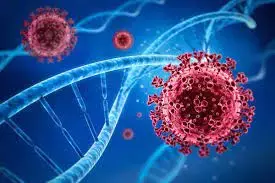- Home
- Medical news & Guidelines
- Anesthesiology
- Cardiology and CTVS
- Critical Care
- Dentistry
- Dermatology
- Diabetes and Endocrinology
- ENT
- Gastroenterology
- Medicine
- Nephrology
- Neurology
- Obstretics-Gynaecology
- Oncology
- Ophthalmology
- Orthopaedics
- Pediatrics-Neonatology
- Psychiatry
- Pulmonology
- Radiology
- Surgery
- Urology
- Laboratory Medicine
- Diet
- Nursing
- Paramedical
- Physiotherapy
- Health news
- Fact Check
- Bone Health Fact Check
- Brain Health Fact Check
- Cancer Related Fact Check
- Child Care Fact Check
- Dental and oral health fact check
- Diabetes and metabolic health fact check
- Diet and Nutrition Fact Check
- Eye and ENT Care Fact Check
- Fitness fact check
- Gut health fact check
- Heart health fact check
- Kidney health fact check
- Medical education fact check
- Men's health fact check
- Respiratory fact check
- Skin and hair care fact check
- Vaccine and Immunization fact check
- Women's health fact check
- AYUSH
- State News
- Andaman and Nicobar Islands
- Andhra Pradesh
- Arunachal Pradesh
- Assam
- Bihar
- Chandigarh
- Chattisgarh
- Dadra and Nagar Haveli
- Daman and Diu
- Delhi
- Goa
- Gujarat
- Haryana
- Himachal Pradesh
- Jammu & Kashmir
- Jharkhand
- Karnataka
- Kerala
- Ladakh
- Lakshadweep
- Madhya Pradesh
- Maharashtra
- Manipur
- Meghalaya
- Mizoram
- Nagaland
- Odisha
- Puducherry
- Punjab
- Rajasthan
- Sikkim
- Tamil Nadu
- Telangana
- Tripura
- Uttar Pradesh
- Uttrakhand
- West Bengal
- Medical Education
- Industry
COVID-19 infection and autoimmunity not linked to developing type 1 diabetes in children: JAMA

Researchers from Colorado and Bavaria, Germany have found in a new study published in the JAMA conducted on over 50,000 kids that there was no link between COVID-19 infection and autoimmunity linked to developing type 1 diabetes.
An increased incidence of clinical diabetes has been reported in children with previous COVID-19.1,2 It is plausible that the virus may trigger an autoimmune response to the islets or hasten metabolic decompensation in persons with already established islets autoimmunity. We tested the hypothesis that previous SARS-CoV-2 infection was associated with autoimmunity, which predicts future type 1 diabetes.
In 2020 and 2021, a cross-sectional screening for islet autoantibodies and SARS-CoV-2 antibodies was offered to children and adolescents aged 1 to 18 years participating in the Autoimmunity Screening for Kids (ASK)3 in Colorado, US, and to children aged 1 to 10.9 years enrolled in the Fr1da study in Bavaria, Germany.
The results of the study are:
- Prior SARS-CoV-2 infections were identified in 1524 (32.3%) of 4717 Colorado youths and in 2862 (6.1%) of 47 253 Bavarian children
- Multiple islet autoantibodies were detected in 21 Colorado youths (0.45%) and in 141 Bavarian children (0.30%). In addition, 26 (0.55%) and 54 (0.11%) Colorado and Bavarian youths, respectively, were positive for a single high-affinity islet autoantibody.
- The prevalence of multiple or single high-affinity islet autoantibodies did not significantly differ between youths with vs without previous SARS-CoV-2 infection in Colorado or Bavaria
- Previous SARS-CoV-2 infection was not significantly associated with the presence of multiple islet autoantibodies or a single high-affinity islet autoantibody controlling for confounders.
Thus, the researchers concluded that there was no significant interaction between the study site and the association with SARS-CoV-2 infection, sex, age, or family history of type 1 diabetes
Reference:
Rewers M, Bonifacio E, Ewald D, et al. SARS-CoV-2 Infections and Presymptomatic Type 1 Diabetes Autoimmunity in Children and Adolescents From Colorado, USA, and Bavaria, Germany. JAMA. Published online August 05, 2022. doi:10.1001/jama.2022.14092
Keywords:
type 1 diabetes, COVID-19, infection, autoimmunity, Colorado, Bavaria, Germany, Adolescent Medicine, Marian Rewers, Ezio Bonifacio, Dominik Ewald, Cristy Geno Rasmussen, Xiaofan Jia, Laura Pyle, Anette-Gabriele Ziegler,JAMA
Dr. Shravani Dali has completed her BDS from Pravara institute of medical sciences, loni. Following which she extensively worked in the healthcare sector for 2+ years. She has been actively involved in writing blogs in field of health and wellness. Currently she is pursuing her Masters of public health-health administration from Tata institute of social sciences. She can be contacted at editorial@medicaldialogues.in.
Dr Kamal Kant Kohli-MBBS, DTCD- a chest specialist with more than 30 years of practice and a flair for writing clinical articles, Dr Kamal Kant Kohli joined Medical Dialogues as a Chief Editor of Medical News. Besides writing articles, as an editor, he proofreads and verifies all the medical content published on Medical Dialogues including those coming from journals, studies,medical conferences,guidelines etc. Email: drkohli@medicaldialogues.in. Contact no. 011-43720751


